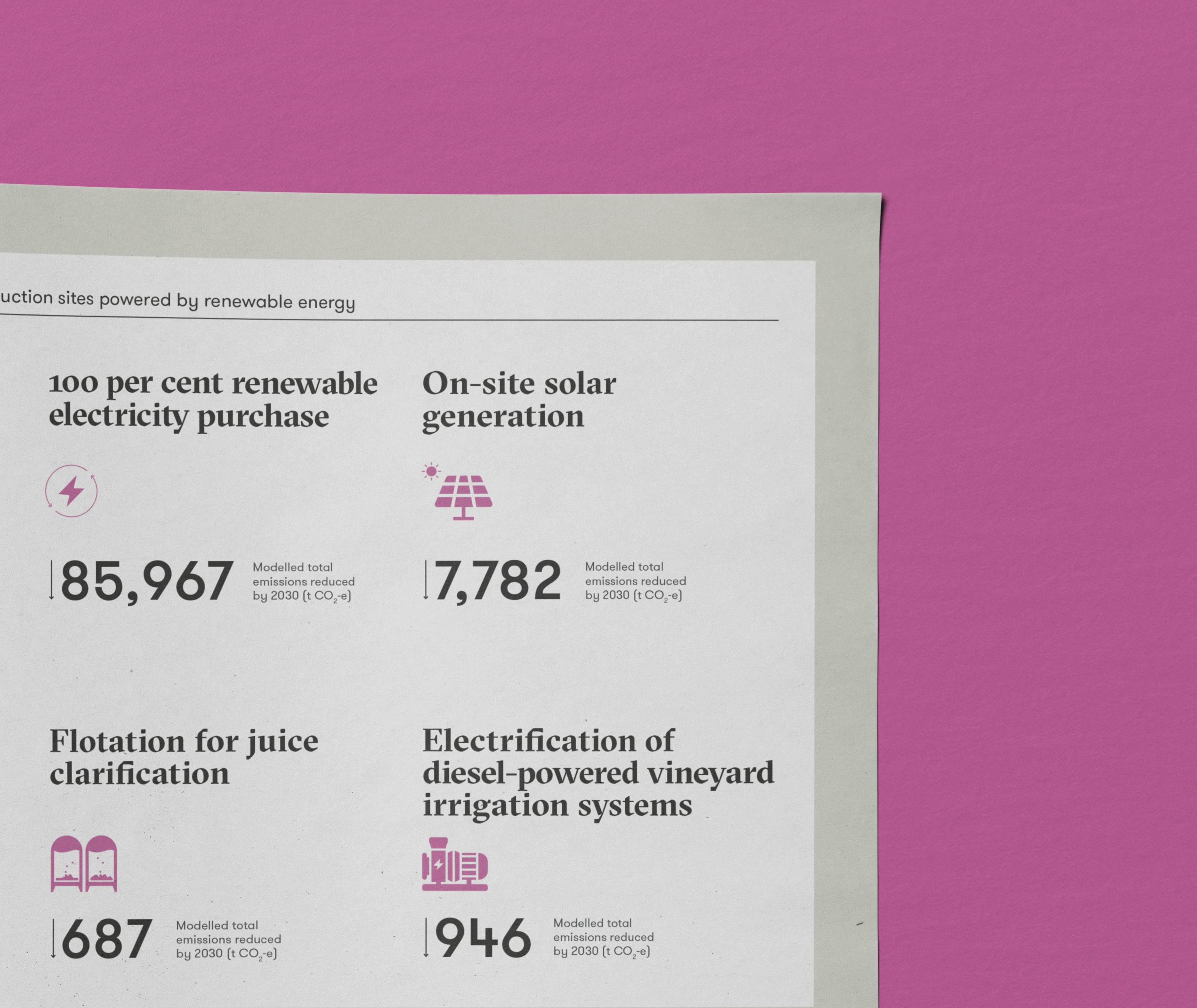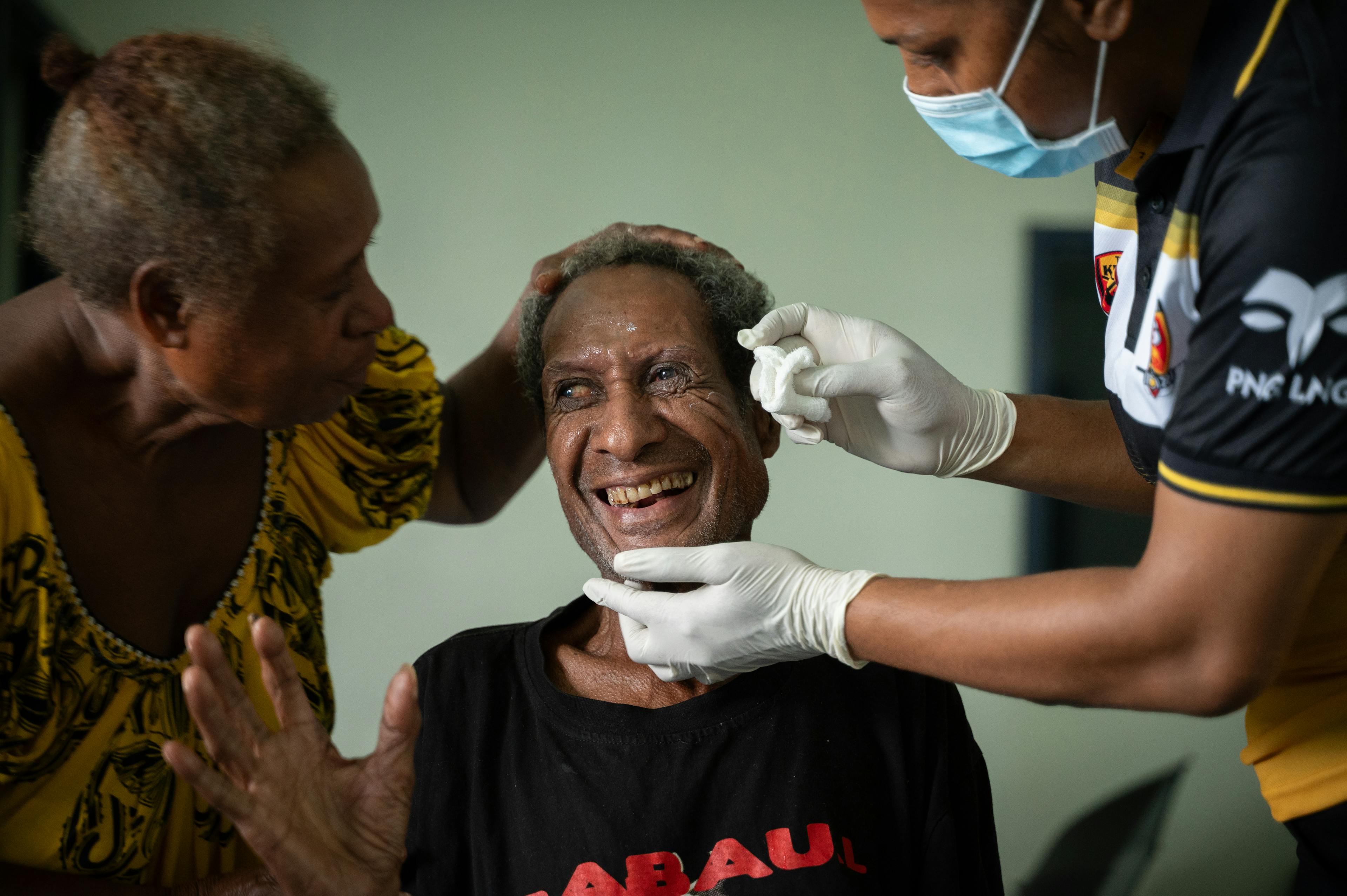
Assessing Climate Risk in Healthcare
Building Climate-Resilient Healthcare Facilities in the Pacific
How Edge Impact is helping The Fred Hollows Foundation NZ protect essential eye care by building local climate capability in Pacific communities
The Challenge
As climate impacts intensify, healthcare facilities across the Pacific risk disruption by extreme weather events, sea level rise and black outs.
To address this, The Fred Hollows Foundation NZ (The Foundation) partnered with Edge Impact to assess and strengthen the resilience of clinics delivering vital services across the Pacific.
Together, they reviewed eye care clinics in Papua New Guinea, Solomon Islands and Vanuatu to understand existing adaptation efforts and identify opportunities to scale WHO-aligned measures.
The resulting evidence base supports future planning, strengthens health system capacity and informs regional leadership in climate-resilient healthcare.
Key Deliverables
Technical Climate Impact Assessments
Dissemination of Findings Workshop
Workshop Pack Including all Presentation Materials
Summary Report
The Approach
The project began with a discovery phase.
Edge Impact used climate projections to assess the vulnerability of three eye clinics in Papua New Guinea, Solomon Islands and Vanuatu. These assessments considered both current conditions and future risks such as extreme weather and rising temperatures.
Next, Edge conducted a preliminary, desktop-based exposure assessment, tailored to each country's context.
This step combined traditional climate risk assessment (CRA) methods with the World Health Organization’s guidance for climate-resilient and environmentally sustainable healthcare facilities (CRESHCF).
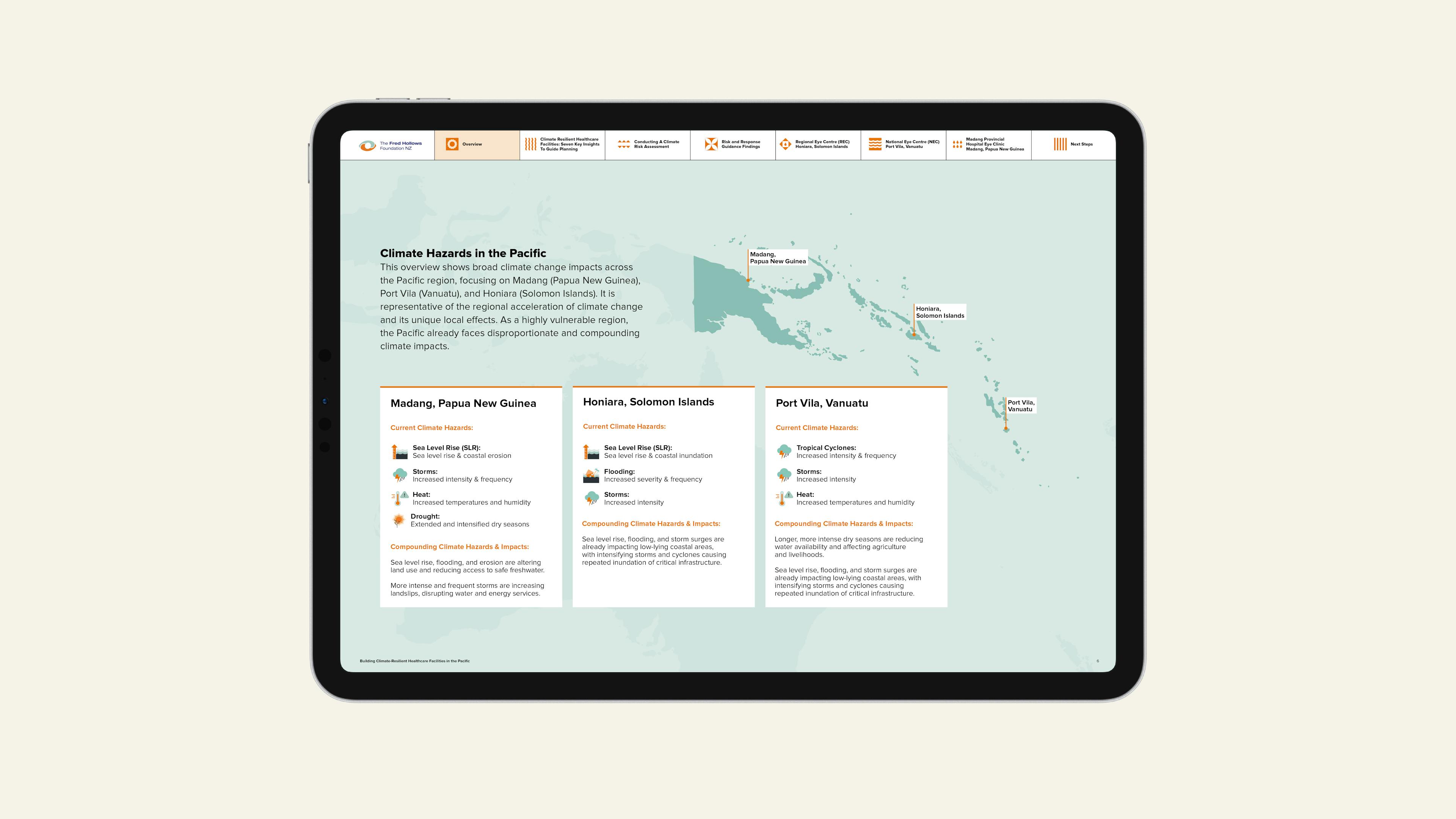
From there, the work moved into the field.
Edge’s team visited the first site and completed a full review of the facility’s infrastructure, operations and services. This included multi-stakeholder engagement, bringing together representatives from government, NGOs and the private sector.
The findings from the systems-level review and evaluation were used to develop a site-specific technical report. Once the methodology and outcomes were reviewed and endorsed by both Edge Impact and The Foundation, the same process was carried out at the two remaining clinics.
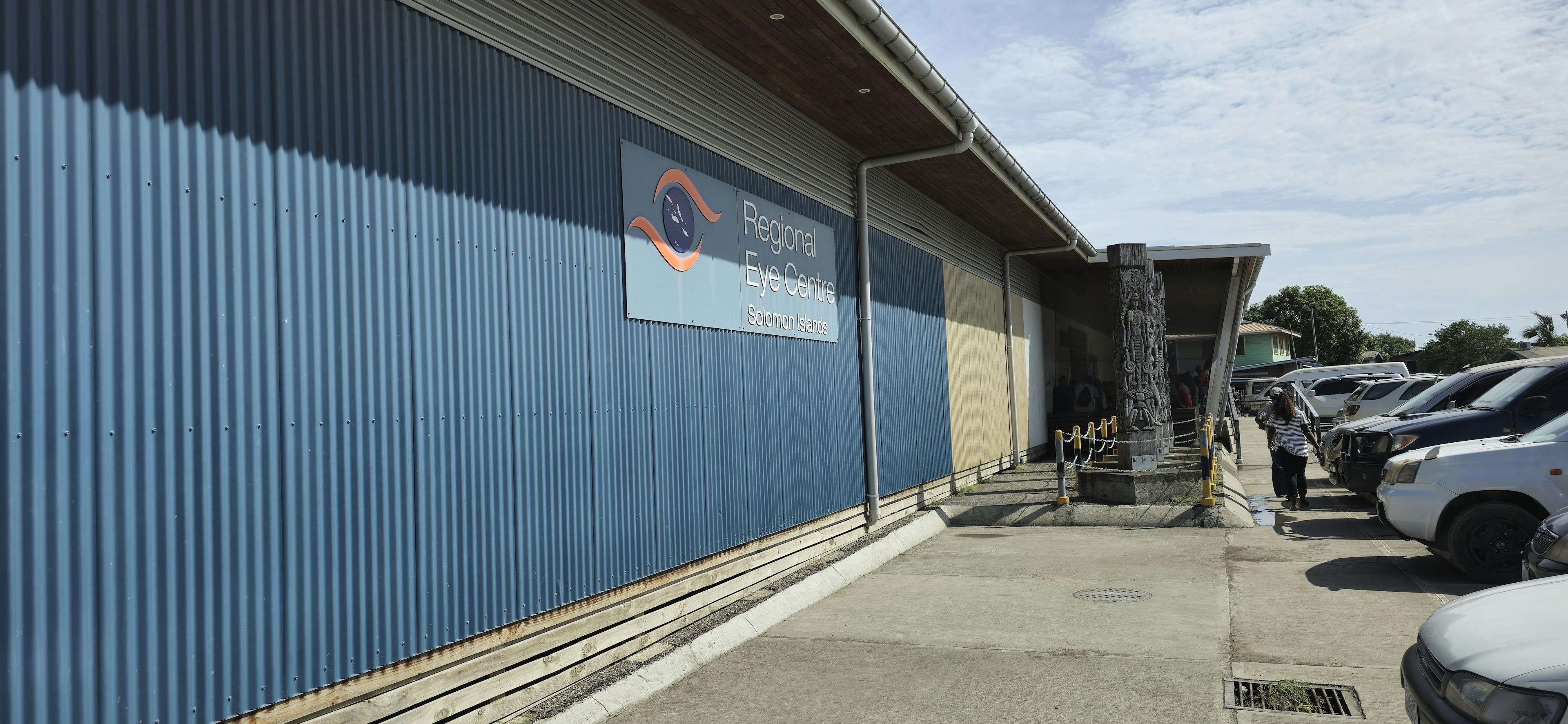
To make the findings accessible across the region, Edge’s Communications team worked with The Foundation and Goodness, who led the report’s design, to translate the technical work into a clear, concise summary.
Goodness also created a workshop package to support The Foundation in promoting climate resilience and sustainable healthcare practices across the Pacific.
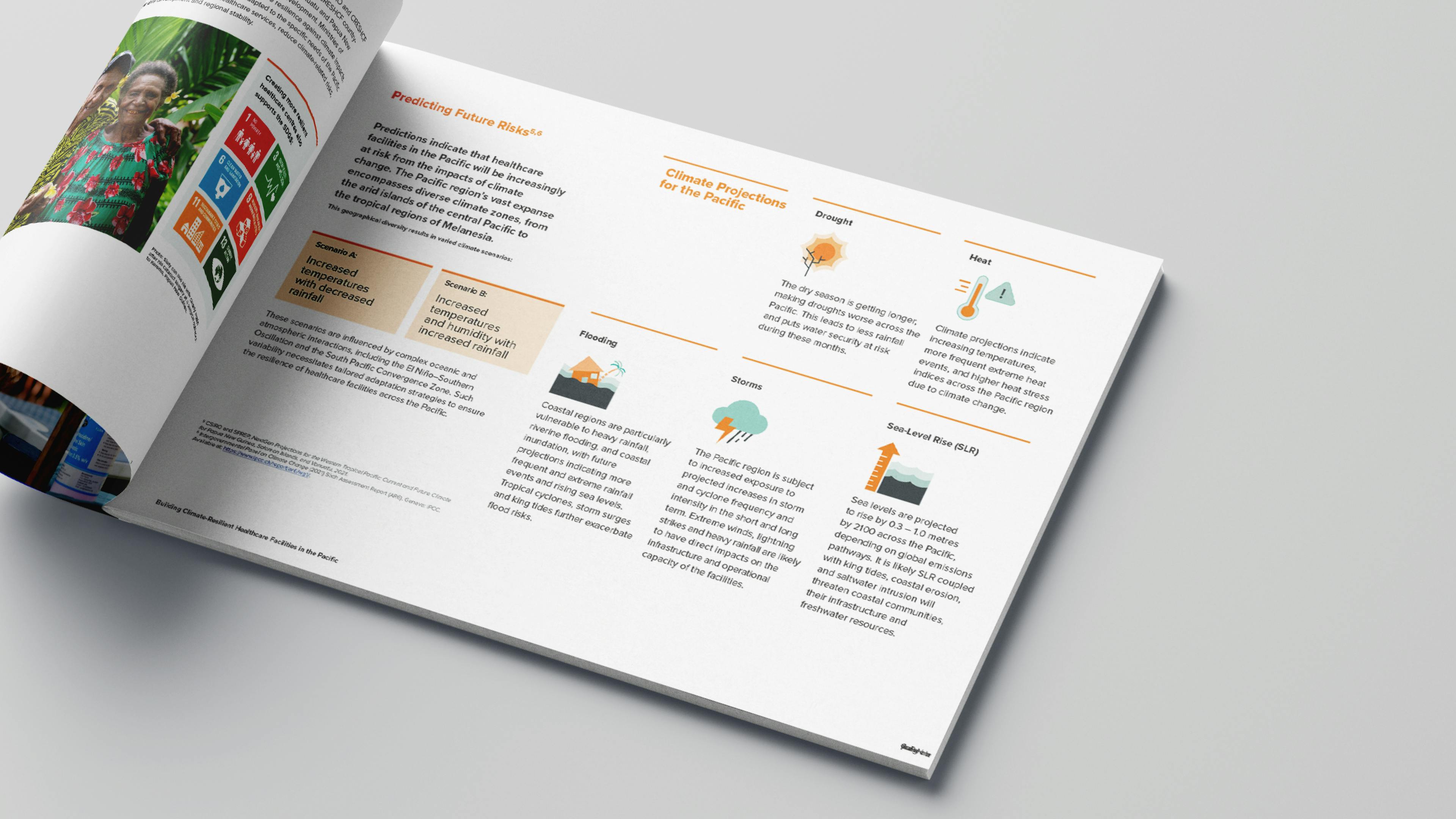
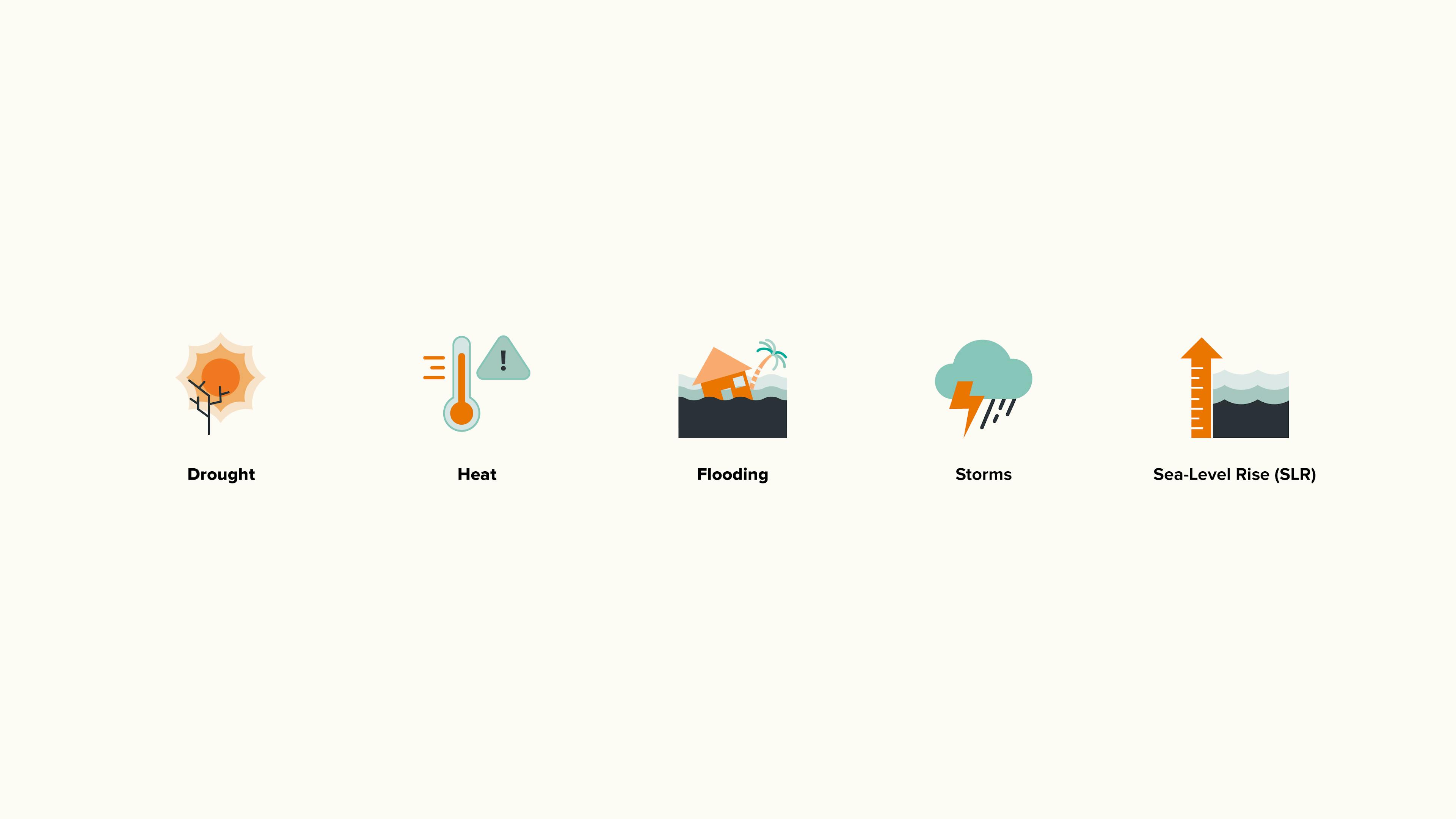
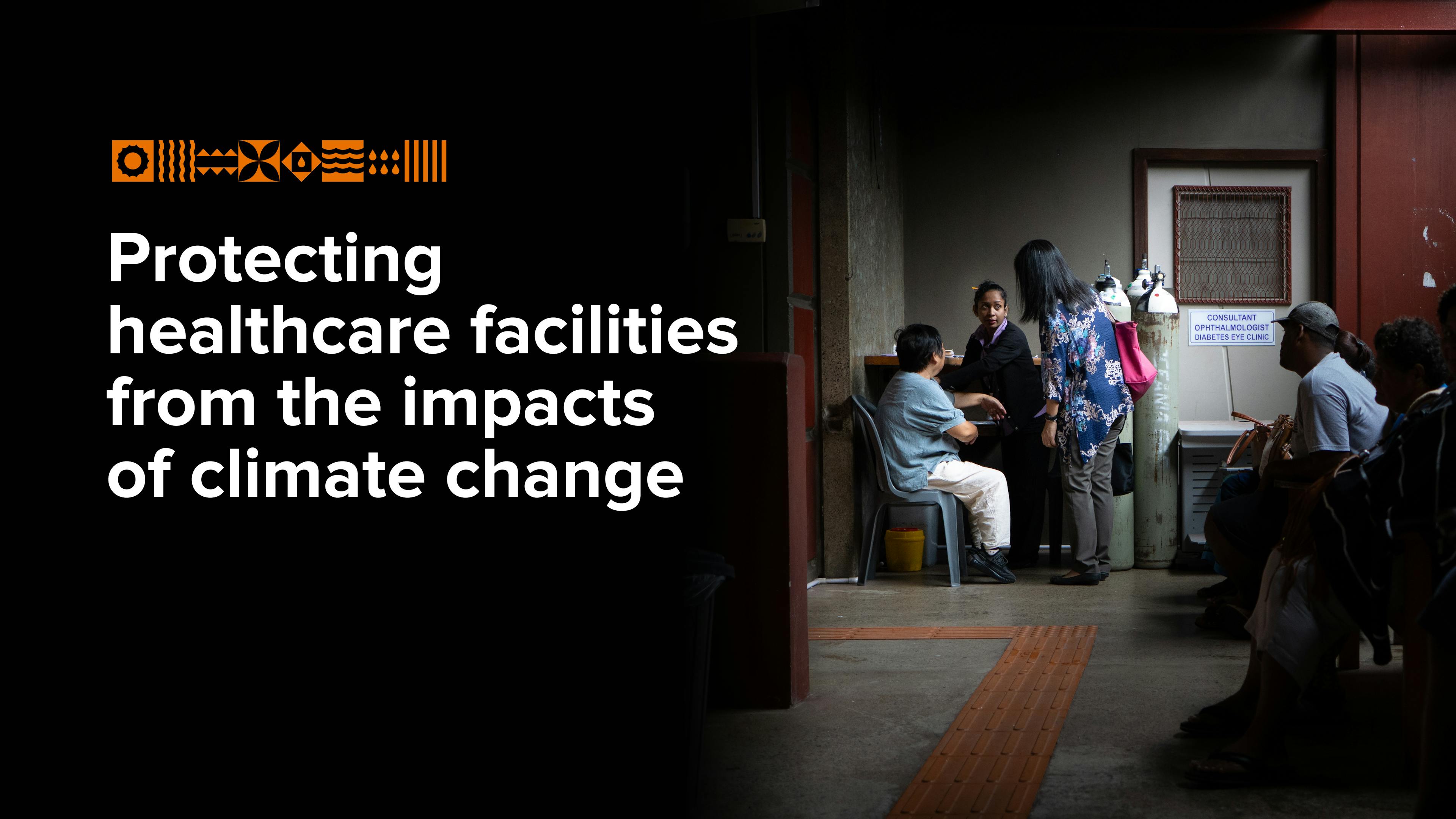
The Result
This work delivered more than just technical reports.
It created tangible improvements in climate resilience, healthcare delivery and local capacity across the Pacific.
The project deepened understanding of the essential role climate resilience plays in helping health systems withstand and respond to climate-related disruptions. In practical terms, investments in energy reliability and water supply enabled clinics to deliver an additional 2,500 eye care interventions each year. These upgrades also supported continuous service delivery and generated close to USD$1 million in cost savings.
The project also built upon the technical and institutional capacity across governments, clinics and communities. Local health workers and decision-makers were equipped with practical tools and strategies to help identify, assess and prepare for future climate risks. It helped strengthen understanding of how resilient infrastructure supports uninterrupted healthcare delivery, even during extreme weather events.
At the same time, the project advanced advocacy by producing accessible, visually engaging reports and workshop materials. These resources were designed to inform policy, guide future investment, and support replication in healthcare settings across the Pacific region.
Most importantly, this work helps ensure that access to essential eye care can continue, even during extreme weather events or other climate-related disruptions. It supports a future where resilient healthcare is recognised as a foundation for both service reliability and health equity across the Pacific.
As experts in the full spectrum of sustainability topics, we are here to guide you through the complexity.
Related case studies
Empowering procurement leaders to harness their buying power
The Sustainable Procurement Toolkit for Eco Choice Aotearoa
The Sustainable Procurement Toolkit empowers businesses and governments to drive ethical, sustainable procurement practices.
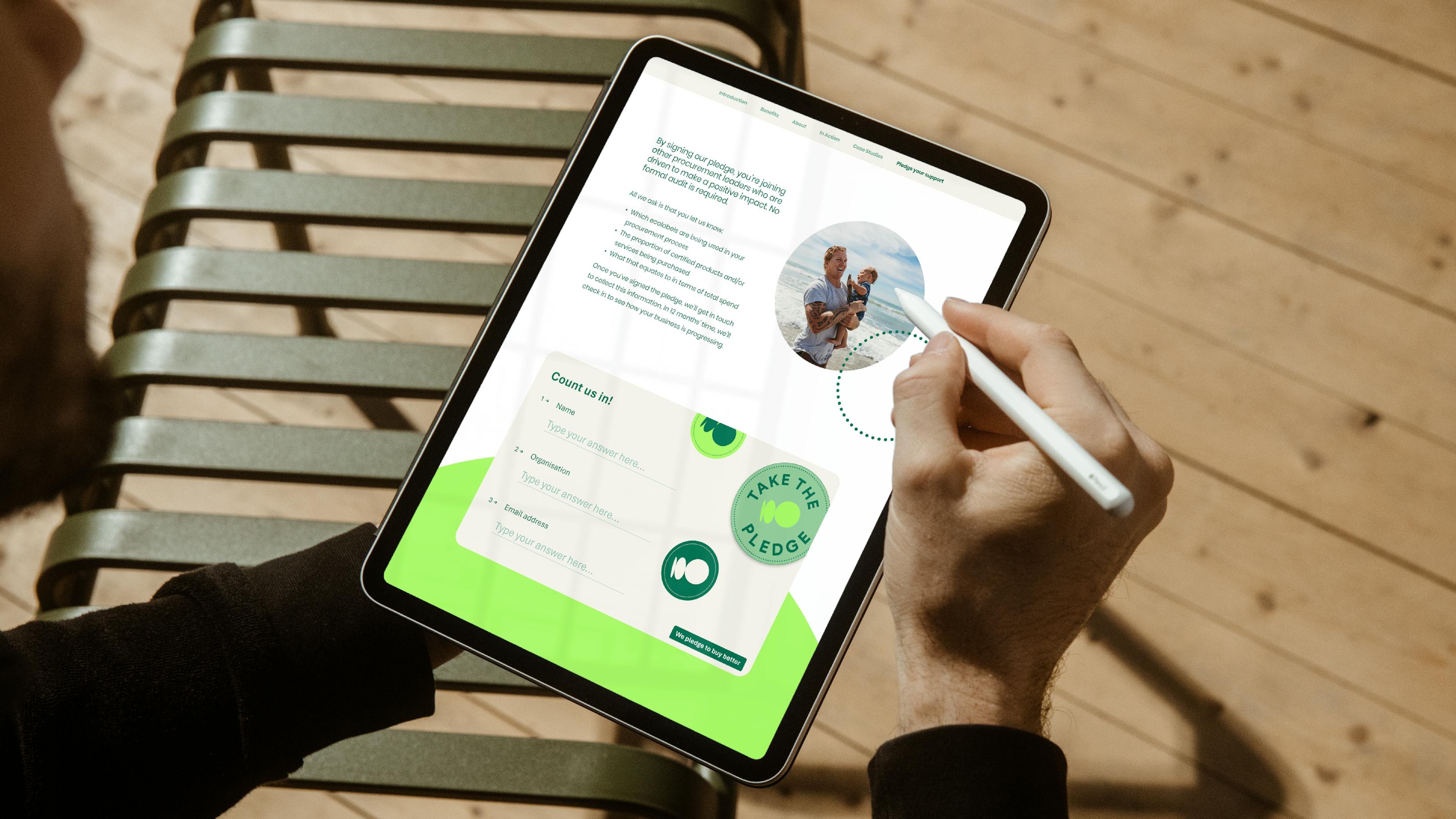
Nature impact and dependency assessment
UNSW’s supply chain reliance and impact on nature
We set out to unpack the nature-related impacts and dependencies through UNSW’s supply chain.
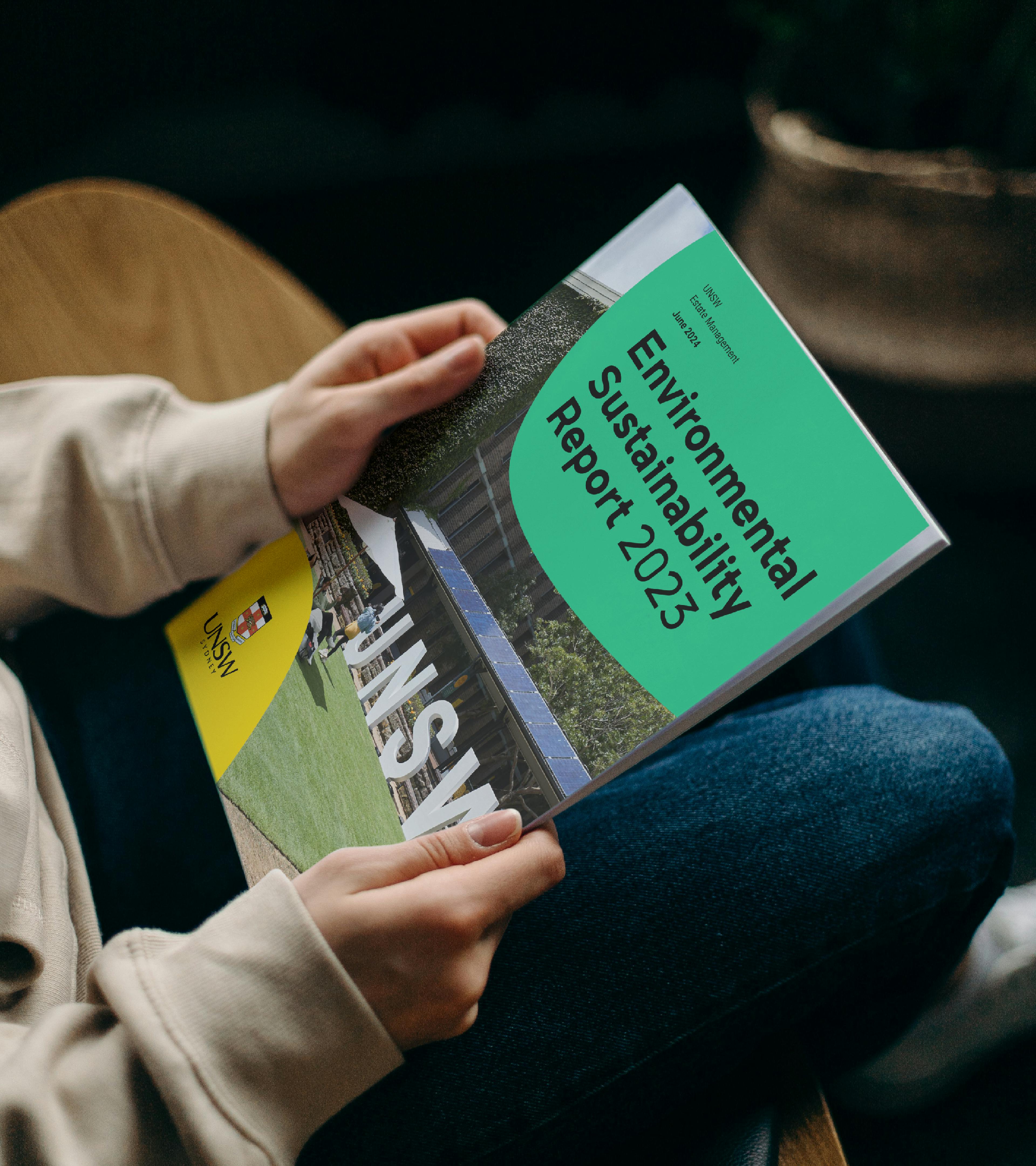
A comprehensive plan for lower emissions in winemaking
Wine Australia's Emissions Reduction Roadmap
An industry-led approach to cutting emissions while ensuring prosperity for grape growers and winemakers.
